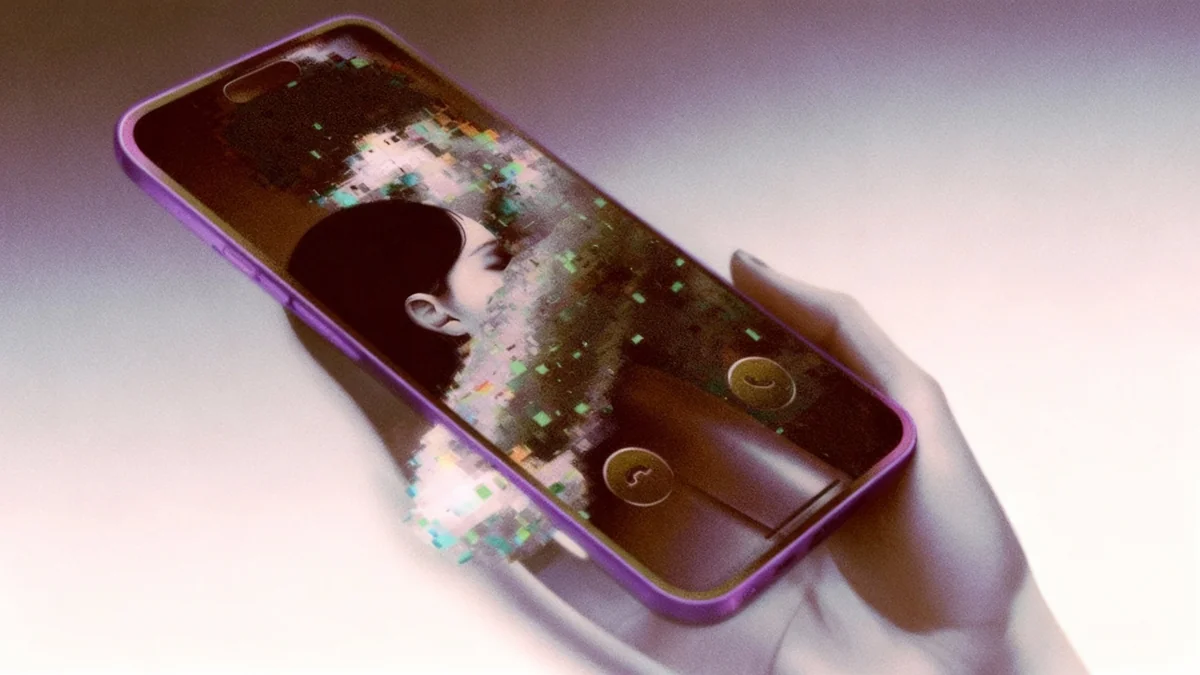A growing number of individuals, particularly from Gen Z, are intentionally choosing less-engaging mobile devices as a reaction to the addictive nature of modern smartphones. This trend, often called a modern Luddite movement, is highlighted by the popularity of devices like the Jelly Star, a credit-card-sized phone designed to be functional but not captivating.
Key Takeaways
- A movement against addictive technology is gaining traction, largely driven by younger generations who grew up with smartphones.
- Minimalist devices like the Unihertz Jelly Star, which has a small 3-inch screen, are becoming popular alternatives.
- This trend is not anti-technology but a protest against what critics call exploitative and attention-demanding app design.
- Sales of simpler phones, often called "dumbphones," are increasing, alongside a renewed interest in older technologies like film cameras and vinyl records.
- Experts suggest the increasing prevalence of AI-generated content on social media may encourage more people to reduce their screen time.
The Appeal of Minimalist Phones
In public spaces, a new type of device is starting to draw attention. The Unihertz Jelly Star, a smartphone roughly the size of a credit card, is one example of this emerging category. It operates on the Android system and can run essential applications like email, GPS, and messaging services.
However, its defining feature is a compact 3-inch screen. This design choice makes prolonged use, such as scrolling through social media feeds or watching videos, uncomfortable. Users have noted that this intentional limitation helps them break habits of excessive phone use.
Designed for Discomfort
According to discussions on online forums like Reddit, the small screen of the Jelly Star is a key selling point. One user described it as "too small to get addicted to," adding that extended use can cause a headache, which serves as a form of negative reinforcement against mindless scrolling.
This approach aligns with a broader desire for digital wellness. Research has repeatedly linked high screen time to negative effects on mental health and sleep quality, especially among younger people. By choosing a device that is functional for necessary tasks but inconvenient for entertainment, users are taking active steps to manage their digital consumption.
Understanding the New Luddite Movement
The trend extends beyond just small phones. It is part of a cultural shift some are calling a "Luddite renaissance," primarily embraced by members of Gen Z. These individuals, often referred to as "screenagers" who grew up with internet-connected devices, are now seeking ways to disconnect.
Who Were the Original Luddites?
The original Luddites were English textile workers in the early 19th century. They protested against the automated looms of the Industrial Revolution, which they saw as a threat to their jobs and livelihoods. The term is now often used to describe someone who opposes new technology.
However, participants in this modern movement are redefining the term. According to tech journalist Brian Merchant, author of "Blood in the Machine," this is not a rejection of technology itself. Instead, it is a critique of how technology is developed and deployed for profit without democratic input.
"I think it ultimately comes down to a frustration with a profoundly undemocratic development and deployment of technology for profit," Merchant stated. "Their gripe is...that it’s filled with all of these addictive and toxic apps that are developed by Silicon Valley companies to serve a narrow set of interests."
Signs of a Growing Trend
Evidence for this movement can be seen in various forms. In New York, a "Luddite Renaissance" rally was recently held. A nonprofit organization called The Luddite Club, founded by former heavy screen users, now has over 20 chapters in high schools and colleges across the United States. Furthermore, market data shows a significant increase in the sales of basic-feature phones.
The trend also includes a renewed appreciation for analog technologies:
- Flip Phones: Some young people are opting for flip phones to handle calls and texts without the distractions of a smartphone.
- Analog Media: The sales of vinyl records, CDs, and even cassette tapes have seen a resurgence.
- Photography: Point-and-shoot digital cameras and traditional film photography are gaining popularity for their simplicity and tangible results.
A Reaction to the Digital Economy
A central argument of this movement is that modern digital platforms have transformed users into unpaid laborers. By posting content, engaging with ads, and sharing personal data, users provide the raw material that fuels a tech economy dominated by a few large corporations like Meta, Google, and Amazon.
The product offered in return is often designed to maximize engagement and keep users on the platform for as long as possible. While these services provide value, such as connecting with friends and family, the user-generated content that once dominated them is changing.
Cultural critic Kyle Chayka has suggested a future he calls "Posting Zero." In this scenario, ordinary people grow tired of the noise and exposure of social media and stop sharing personal updates. This would leave the platforms filled primarily with corporate marketing, content from professional influencers, and AI-generated material.
The Future of Social Media and AI
Tech executives appear to be leaning into a future less reliant on user-generated content. Meta CEO Mark Zuckerberg has described a vision where AI-powered characters and interactive content could become a significant part of a user's feed. He suggested that AI "friends" might one day outnumber human connections on the platform.
Zuckerberg on AI Companions
In a public statement, Mark Zuckerberg envisioned a future where users interact with AI directly within their social feeds. He described content that "talks back, or it changes what it’s doing," suggesting a shift from passive consumption to interactive AI experiences.
This potential shift toward AI-generated content could further fuel the digital detox movement. As the lines between authentic human content and sophisticated AI creations blur, the risk of misinformation increases. According to Brian Merchant, this could make it easier for people to disengage entirely.
If social platforms become saturated with AI-generated material, he argued, more users may decide to "just opt out of stuff all together." This suggests that the very technologies designed to capture attention could ultimately drive people away, reinforcing the principles of the modern Luddite movement.





